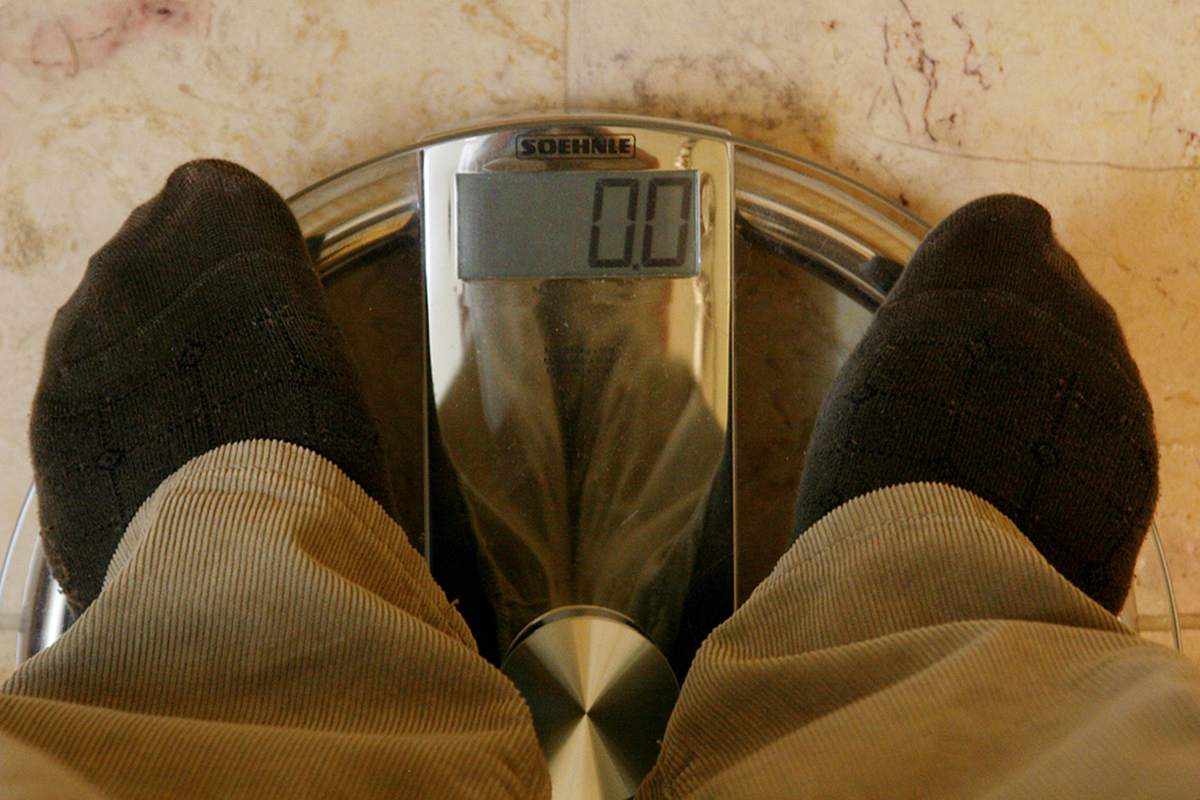"Had a mate who [...] who used to take [it] while studying, he used to stay awake for [a] couple of days straight, reading books cover to cover. It's like having a drip of coffee all day," one person says.
Another, who actually used it themselves, adds: "It would give you enhanced energy, make you sweat filthy sweat and allow you to party hard. The pimples and horrid stomach were enough to convince us that this was not as much fun as we had heard."
A third shares: "Tried — had an immediate effect — for the first four or five days I didn't feel like eating. Or sleeping for that matter..."

These folks are discussing Duromine, a powerful appetite suppressant and prescription drug that is meant to help people who are so obese that their weight is putting their life at risk to lose weight. Duromine and other Phentermine-based diet pills have risen in popularity among people who aren't morbidly obese but still want to achieve weight loss. There's no doubt that Phentermine can help people drop pounds, but is it a little too close to street drugs for comfort?
What Is Phentermine?
You may know Phentermine and medications containing phentermine as diet pills. Phentermine is indeed FDA-approved as an obesity treatment. Drugs that combine Phentermine with other medications are also available, with Qsymia (Phentermine/Topiramate — formerly known as Qnexa) having been the first Phentermine combo medication to hit the US market. Other drugs that contain Phentermine include Duromine, Axcion, Metermine, Adiphene, and Adipex P. Most of these drugs are available only in certain parts of the world, but some variation of Phentermine is available almost everywhere.[1]
Belonging to the phenethylamine class, it's structurally similar to amphetamine. Amphetamine, in turn, is closely related to methamphetamine, which is most commonly referred to as "speed" — though it also goes by many other street names, like "uppers", "oranges", "Bennies" and "eye openers". Phentermine is so similar to speed that it has been nicknamed "the legal speed".
Phentermine Vs Speed
Let's compare the effects of Phentermine and speed for a moment. In low to moderate doses, speed can make a person feel euphoric, agitated, anxious, nervous, and extremely talkative. People on speed can stay awake for long periods of time, and they'll have trouble falling asleep if they indeed want to sleep. Speed can also cause a headache, a rapid heartbeat, hypertension, a dry mouth, shortness of breath, stomach pain, changes in libido, and a reduced appetite.[2]
READ Duromine Diet Pills: Does Weight Loss with Duromine Really Work?
Phentermine, meanwhile, is obviously meant to cause a reduced appetite. Some of its "side effects" are remarkably similar to the effects of speed: euphoria, agitation, nervousness, restlessness, a dry mouth, a rapid heartbeat, vomiting, diarrhea, stomach pains, headache, facial edema, and changes in libido.
Who Should Use Phentermine To Lose Weight?
Is Phentermine Really A Run-Of-The-Mill Addictive Drug Under A Legal Guise?
While a 2013 study showed that people who stop taking Phentermine don't experience withdrawal symptoms, leading to a conclusion that the weight loss drug is not addictive, it's hard to ignore just how similar speed and Phentermine really are.
This is also why Phentermine is a schedule IV controlled substance under the UN Convention on Psychotropic Substances as well as a schedule IV controlled substance in the US. This is a prescription-drug only, in other words, and not something anyone should take without a doctor's close supervision — that would be a bad idea for your health, as well as simply illegal.[3]

Former president of the UN's International Narcotics Control Board Professor Hamid Ghodse told the UK tabloid the Daily Mail: "They've been around in various guises since the Sixties and are highly addictive. Users can experience painful withdrawal symptoms, including nausea, headaches and convulsions, when they try to stop taking the drug". Internet users from all over the world who try to come off Phentermine appear to agree with Ghodse.
So, Should You Be Taking Phentermine To Lose Weight?
First off, people who are already taking another substituted amphetamine, those who hyperthyroidism, glaucoma, epilepsy, prostatic hypertrophy, peptic ulcers, or who are pregnant should not take Phentermine — and that's just the start of the list of contraindications. If you are considering using Phentermine to lose weight, it's important to discuss the advantages and risks of taking this weight loss medication with your healthcare provider in detail.
Needing to take the drug under medical supervision is one very powerful reason never to resort to ordering Phentermine or any drug containing Phentermine illegally off the internet. The fact that you'll never really know what's in medications you buy online is reason number two to steer well clear of dubious "online pharmacies".
If you have tried to lose weight without success and your obesity is harming your health, your doctor may consider prescribing you one of the medications that contain Phentermine. If you struggle with food addiction and need something to suppress your appetite while you are trying to lose weight, your doctor may consider prescribing you a Phentermine-based medication. Phentermine is still meant to be used as a mere part of your weight loss plan in this case — not as a whole weight loss plan by itself.
READ Eloise Parry's Tragic Death: A Chilling Warning Never To Take Illegal Diet Pills
Because the side effects Phentermine can cause are unpleasant, and because the medication comes with a long list of contraindications, taking a drug like this is something that deserves careful consideration on your part and that of your healthcare provider. It is also important to keep in mind that taking Phentermine is a stop-gap, not meant to be a long-term endeavor. A good diet plan, talk therapy to address any food addiction issues you have, and regular exercise will help those who are committed to maintaining their new weight when they stop using Phentermine. (The flip side of this is that many people who lost weight on Phentermine report that they put the pounds right back on when they stopped if they didn't also make numerous lifestyle changes!)
- Photo courtesy of Matt Browne via Flickr: www.flickr.com/photos/mattbrowne/83845784
- Photo courtesy of dsearls via Flickr: www.flickr.com/photos/docsearls/5500725788

